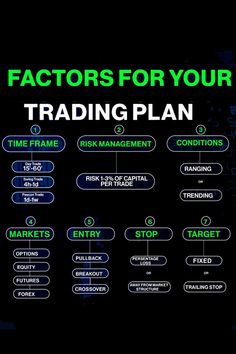Mastering Market Psychology: The Key to Successful Trading, Trading isn’t just about analyzing charts and indicators; it’s also about understanding the psychological aspects that influence market movements.
1. Understanding Market Psychology:
Market psychology refers to the collective emotions, sentiments, and behaviors of market participants, which drive buying and selling decisions. It encompasses factors such as fear, greed, optimism, pessimism, and herd mentality.
2. The Role of Emotions in Trading:
Emotions play a significant role in trading and can often cloud judgment and lead to irrational decision-making. Common emotions experienced by traders include:
- Fear: Fear of losing money can cause traders to hesitate or exit positions prematurely, missing out on potential profits.
- Greed: Greed can lead traders to take excessive risks or chase after unrealistic returns, resulting in losses.
- Hope: Hope can blind traders to unfavorable market conditions, causing them to hold onto losing positions in the hope of a reversal.
3. Overcoming Emotional Biases:
To become a successful trader, it’s essential to overcome emotional biases and develop a disciplined mindset. Here are some strategies to help:
- Stay Objective: Base trading decisions on objective analysis and predefined criteria rather than emotions or gut feelings.
- Practice Patience: Exercise patience and wait for optimal entry and exit points, rather than succumbing to impulsive trades.
- Manage Risk: Implement risk management strategies such as setting stop-loss orders and position sizing to protect capital and minimize losses.
4. Recognizing Market Trends and Sentiments:
Understanding market trends and sentiments is crucial for identifying trading opportunities and managing risk effectively. Key indicators of market sentiment include:
- Volume: High trading volume often accompanies strong price movements, indicating increased market participation and sentiment.
- Social Media Sentiment: Monitor social media platforms and online forums for discussions and sentiment surrounding specific assets or markets.
- News and Events: Pay attention to news events, economic indicators, and geopolitical developments that may impact market sentiment and direction.
5. Building a Trading Plan:
A well-defined trading plan can help mitigate the influence of emotions and guide decision-making. A trading plan should include:
- Clear Objectives: Define your trading goals, risk tolerance, and desired returns.
- Entry and Exit Criteria: Establish specific entry and exit points based on technical analysis, fundamental analysis, or a combination of both.
- Risk Management Rules: Determine position sizing, stop-loss levels, and risk-reward ratios to manage risk effectively.
Conclusion:
Mastering market psychology is essential for achieving success in trading.
Opportunities and Considerations for Sustainable Returns
Understanding Emotions in the Stock Market
Analyze current trends in the stock market

Şişli duvara TV montajı Şişli’de internet arıza durumlarında, nöbetçi elektrikçiler hızlı bir şekilde müdahale ederek sorunu çözerler. Profesyonel ekipler, 7/24 hizmet vererek müşterilerin internet erişimini kesintisiz bir şekilde sağlarlar. Bu sayede, müşterilerin işleri aksamadan devam eder ve iletişim sorunları yaşanmaz. https://www.barplate.com/?p=17446
Kadıköy elektrikçi olarak kadıköy ilçesine yakın bir konumdayız. Hizmetlerimizi en iyi ekipmanlar ile en uygun fiyatlara yapıyoruz Kadıköy Elektrik Ustası. Kadıköy merkez ve kadıköyün bütün mahallerine profosyonel hizmet kalitesi ile hizmet veriyoruz. https://kansabook.com/ustaelektrikci
Ümraniye Evimde Su Kaçağı Vae Ümraniye Rögar Temizleme Tuvalet Banyo Alt Yapı Pimaş Boru Kanalizasyon Giderleri Tıkanıklığı Açma Temizleme ve Vidanjör Hizmetleri https://www.gold-icecream.com/?p=561